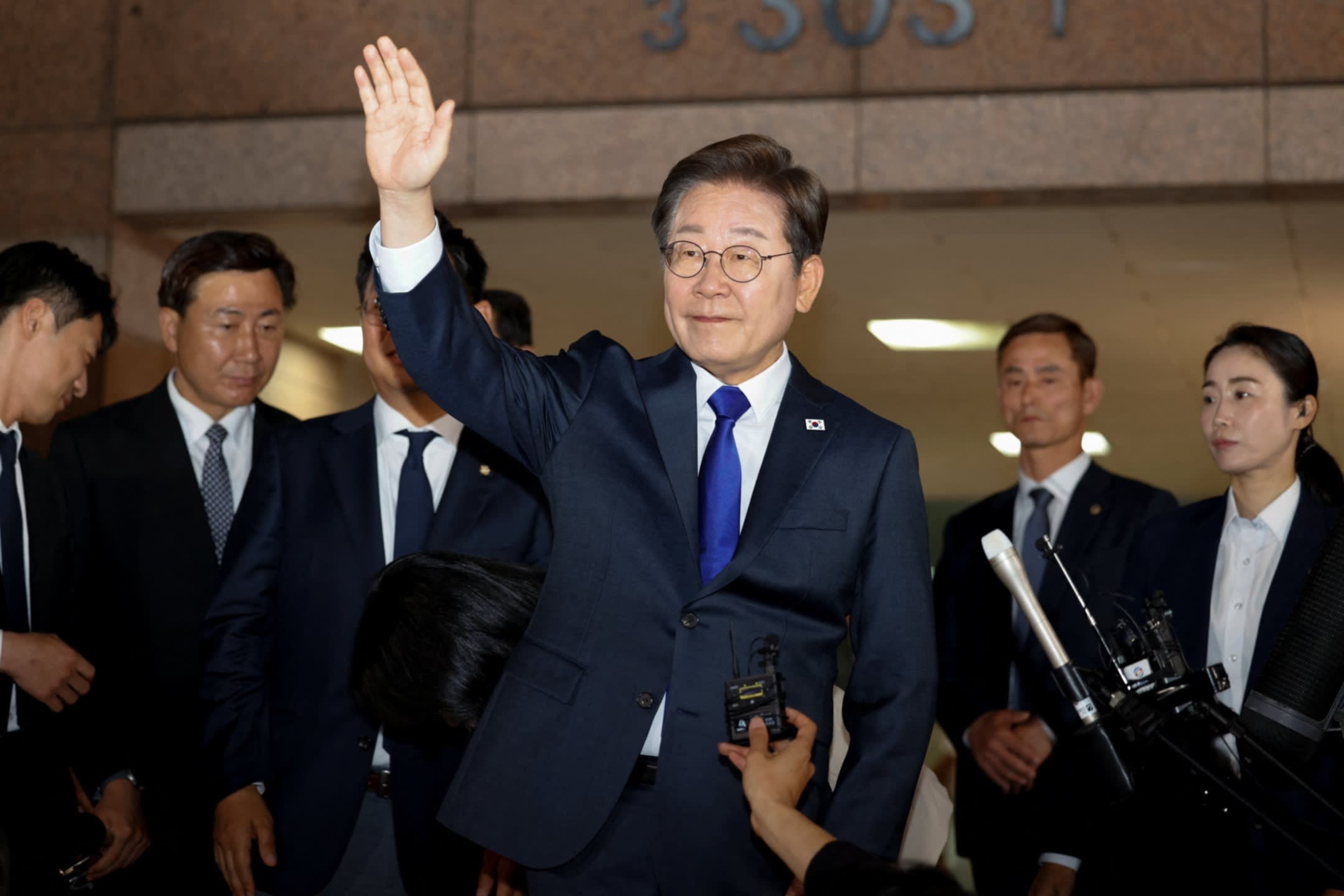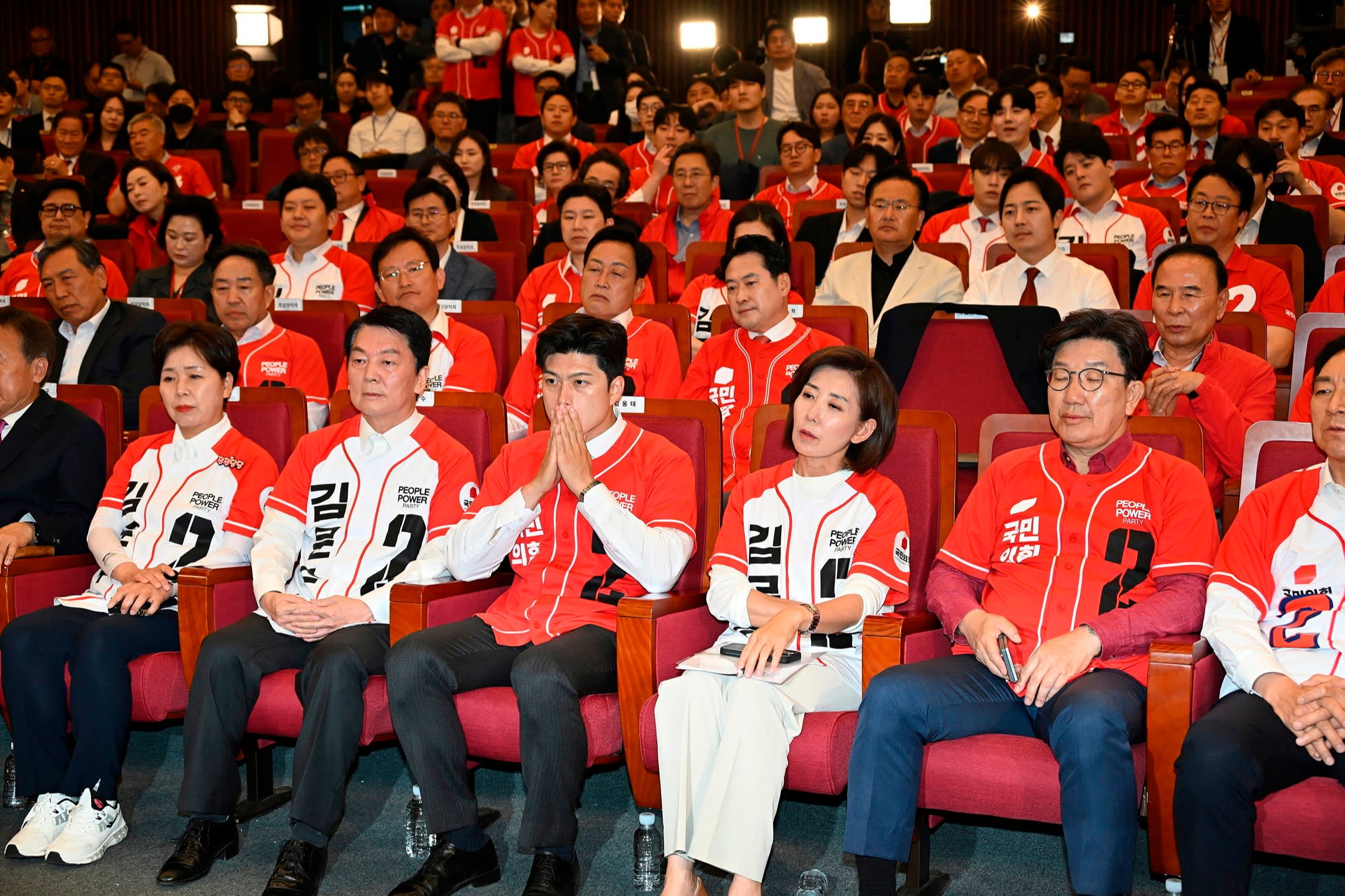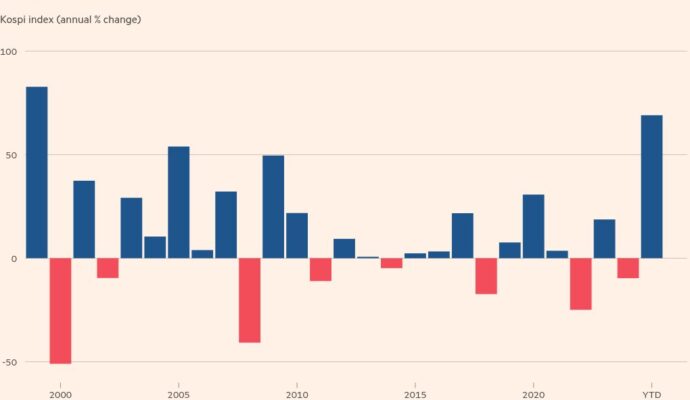Unlock the Editor’s Digest for free
Roula Khalaf, Editor of the FT, selects her favourite stories in this weekly newsletter.
Opposition leader Lee Jae-myung has won a clear victory in South Korea’s presidential election, according to leading broadcasters.
With more than two-thirds of votes counted, three leading South Korean broadcasters showed Lee, candidate of the leftwing Democratic party, more than five points ahead of second-placed rival Kim Moon-soo of the conservative People Power party.
Analysts said victory for Lee, whose party already controls South Korea’s national assembly, would give Asia’s fourth-largest economy much-needed political stability at a time of slowing growth exacerbated by US President Donald Trump’s tariff blitz and by geopolitical uncertainty.

South Korean politics have been in turmoil since then-president Yoon Suk Yeol’s failed attempt to impose martial law in December. The crisis led to Yoon’s removal in April, triggering Tuesday’s early presidential election.
South Koreans had made a “fiery judgment against the insurrection regime”, Democratic party acting leader Park Chan-dae told broadcaster KBS after the exit poll was released.
Lee had lost to Yoon by a margin of less than 1 per cent in the previous South Korean presidential election in 2022, when he ran as a leftwing firebrand pledging to introduce a universal basic income.
Sangsin Lee, a research fellow and polling expert at the Korea Institute for National Unification (Kinu), said Lee had tacked to the centre in recent months, offering reassurance to moderate and conservative voters alienated by Yoon and his People Power party.
“Lee Jae-myung boldly declared himself a ‘centrist conservative’ in this election, emphasising that there would be no drastic changes under his leadership,” said Lee. “After Yoon’s coup attempt, Koreans longed for political and economic stability, and he responded to that demand.”
During his campaign, Lee, a former factory worker and lawyer, promised to expand public spending and invest in South Korea’s advanced manufacturing capabilities, arguing the country needed to be put on an “economic wartime footing”.
He is expected to revive high-level talks with the Trump administration, which is threatening broad “reciprocal” tariffs of 25 per cent on South Korea despite the two countries’ long-standing free trade agreement.
Companies are already feeling the effects of Trump’s imposition of tariffs on steel and cars, with South Korea’s exports to the US down more than 8 per cent year-on-year in May.
Consumer confidence has been shaken by six months of political turmoil and the Bank of Korea last week slashed its forecast for economic growth in 2025 to 0.8 per cent from 1.5 per cent.

Analysts said the incoming administration was likely to come under pressure from the Trump administration to increase defence spending and to shoulder more of the costs of hosting US troops.
“In the short term, negotiations with the US on tariffs and defence spending will be the new president’s biggest challenge,” said Shin Yul, professor of politics at Myongji University.
While stressing the continuing importance of South Korea’s alliance with the US, Lee is also expected to try to improve his country’s ties with China and Russia, and to pursue closer engagement with North Korea.
Benjamin Engel, visiting professor at Dankook University, said efforts to engage with Pyongyang would be complicated by the North’s repudiation last year of its traditional commitment to eventual Korean reunification.
South Korean presidents are constitutionally limited to serving a single five-year term. Because Yoon was removed less than three years into his term, the new president will be inaugurated on Wednesday without the usual two-month transition period.
Lee Hyun-soo, a 54-year-old interior designer who voted for Lee, said she hoped he would “protect the country’s democracy and revive the economy”, while also “punishing those involved in Yoon’s martial law decree and his insurrection attempt”.
Additional reporting by Song Jung-a in Seoul


